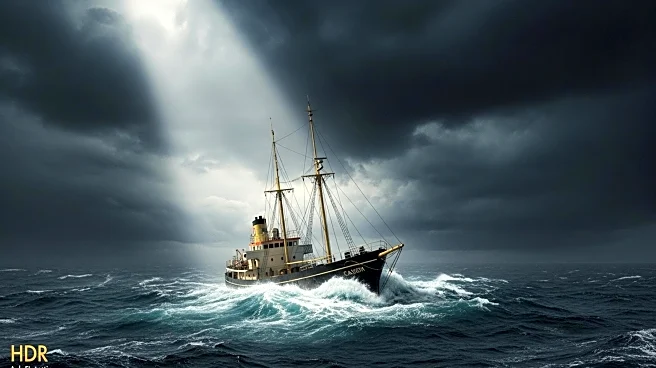What's Happening?
Activists aboard the Global Sumud Flotilla have accused Israel of mistreatment after the Israeli Navy intercepted their vessels. The flotilla, which included Swedish activist Greta Thunberg and Brazilian activist Thiago Avila, was reportedly subjected to harsh conditions. Activists claim they were provided with insufficient food and water and were detained in cells infested with bugs. The flotilla was intercepted as it attempted to reach Gaza, a region often at the center of geopolitical tensions. The activists' allegations have sparked international attention, highlighting ongoing disputes over maritime interventions and humanitarian efforts in the region.
Why It's Important?
The accusations against Israel by the flotilla activists underscore the ongoing tensions in the region and the complex dynamics of international humanitarian efforts. The involvement of high-profile activists like Greta Thunberg brings additional scrutiny and media attention to the situation. This incident may influence international perceptions of Israel's maritime policies and its handling of humanitarian missions. The allegations could also impact diplomatic relations and provoke responses from international human rights organizations, potentially leading to calls for investigations or policy reviews.
What's Next?
The international community may respond to the activists' allegations with calls for investigations into the treatment of those aboard the flotilla. Human rights organizations could demand accountability and transparency from Israel regarding its maritime interception practices. Additionally, diplomatic discussions may arise, focusing on the balance between national security and humanitarian rights. The incident could also lead to increased advocacy and activism aimed at addressing the broader issues of access to Gaza and the treatment of humanitarian missions in conflict zones.
Beyond the Headlines
This incident highlights the ethical and legal challenges associated with maritime interventions in politically sensitive regions. The treatment of activists and the conditions of their detention raise questions about international maritime law and human rights standards. The involvement of prominent figures like Greta Thunberg may also influence public discourse on environmental and humanitarian activism, potentially encouraging more individuals to engage in similar efforts. Long-term, this could lead to shifts in how such missions are perceived and conducted globally.











